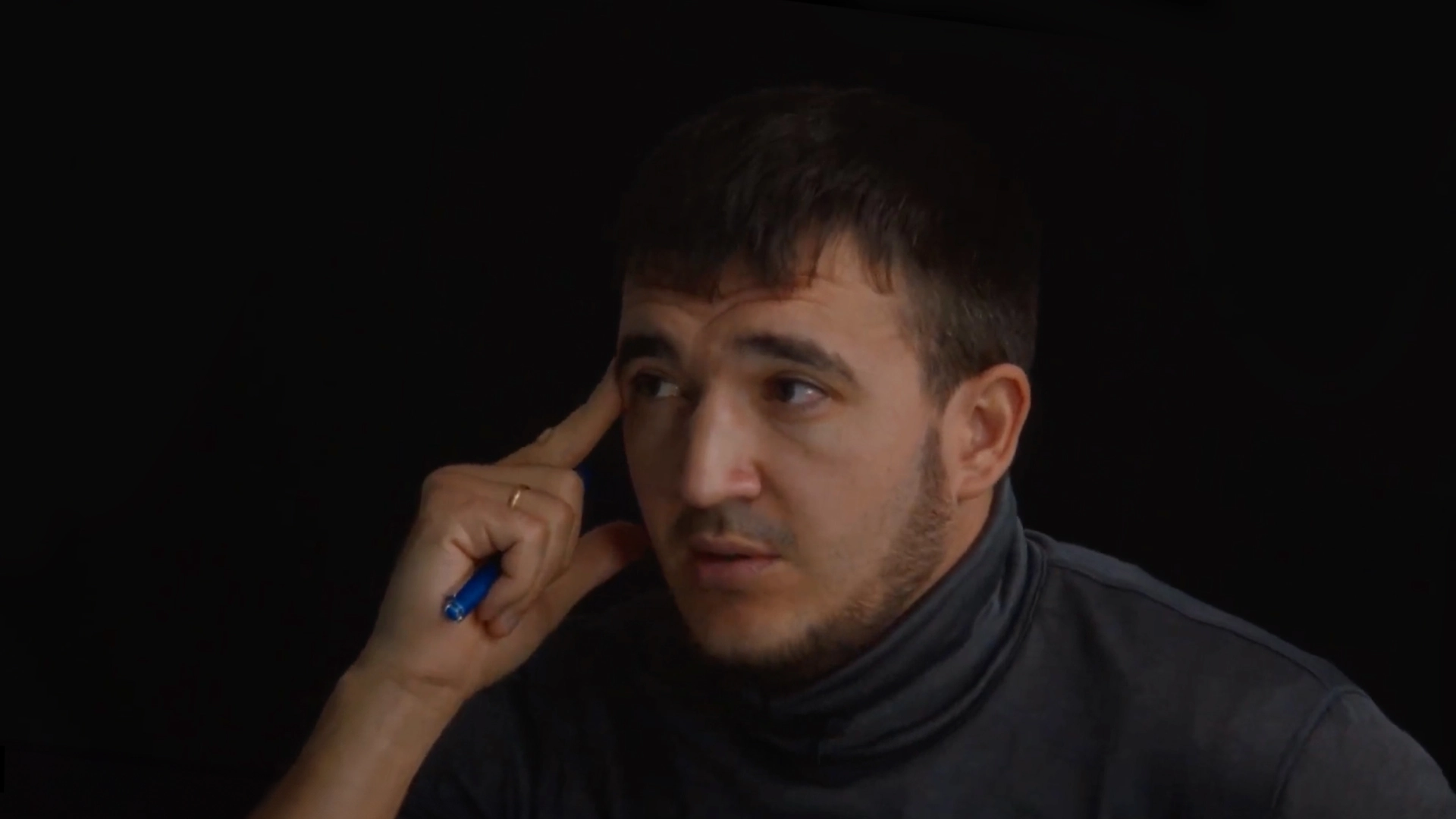
Vitalii Tsesar
Vitalii was born in Pokrovsk, Donetsk Oblast. In 2018, he moved to the village of Nikolske and later to the outskirts of Mariupol. Before the escalation of the war, he worked as a driver at Azovstal Iron and Steel Works and Mariupol Illich Steel and Iron Works.
The Russian Federation army occupied the district where Vitalii lived in the first days of the war escalation at the end of February 2022. Therefore, on 5 March 2022, Vitalii, his wife, their three children, his mother, and his sister went to the Mariupol Drama Theatre to try to evacuate. When the Russian army broke the ceasefire, he and his family had to stay in the theater. Initially, the family lived in the left wing of the theater, in the lobby on the first floor, but later moved to the basement behind the stage. Later, Vitalii and his wife joined the theater’s volunteer group, where they helped prepare meals for the theater’s residents.
When the Russian Federation army attacked the Drama Theatre, Vitalii, his family and other theater’s residents were in the basement behind the stage. However, as this basement had no special protection, Vitalii and other people in the room were severely injured. After the attack, the family managed to leave the city.
This is a short version of an eight-hour interview with Vitalii, which was conducted using the methodology of spatial testimonies. Vitalii describes the change in the theater space that served as a shelter, the forming of the field kitchen and the organization of its work, and the consequences of the air strike on the Drama Theatre.
The interview was created with the financial support of European Union, International Renaissance Foundation
This publication/interview was compiled with the support of the European Union and the International Renaissance Foundation within the framework «European Renaissance of Ukraine» project. Its content is the exclusive responsibility of the authors and does not necessarily reflect the views of the European Union and the International Renaissance Foundation.
